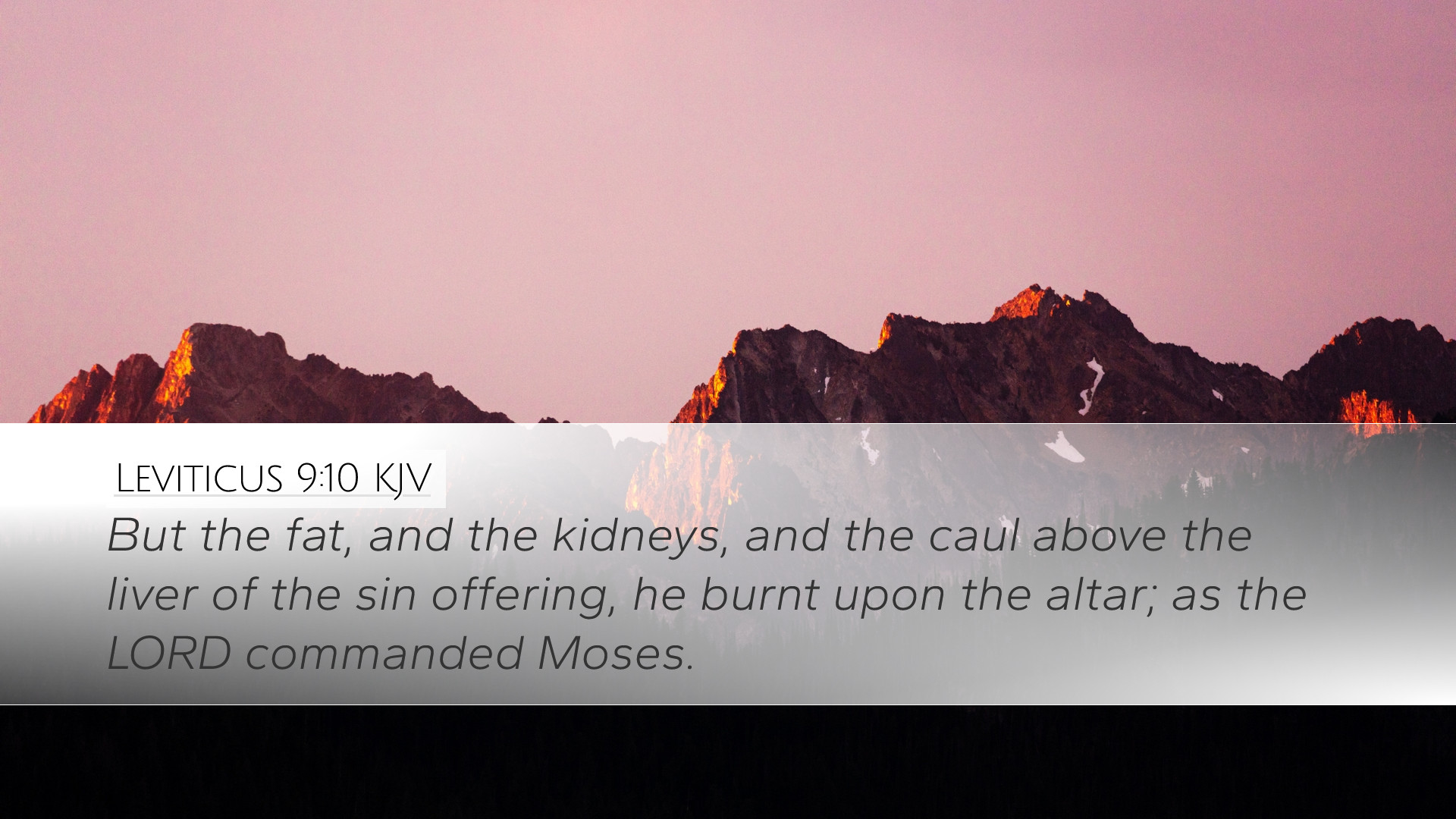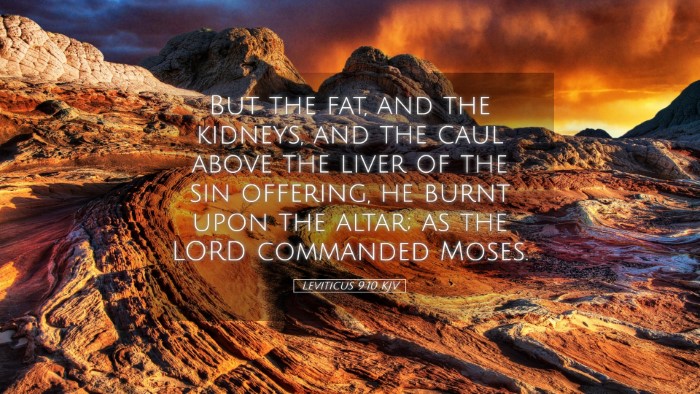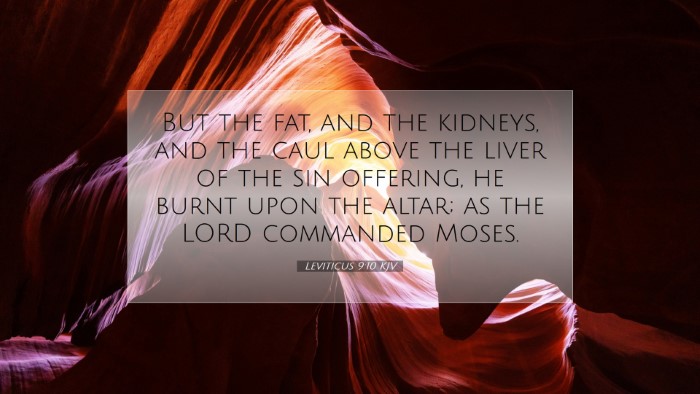Commentary on Leviticus 9:10
Verse Overview: Leviticus 9:10 states: “But the fat and the kidneys and the lobe of the liver of the sin offering he burnt upon the altar; as the Lord commanded Moses.” This verse occurs within the context of the initiation of the priestly ministry, emphasizing the importance of proper worship and sacrifice in Israel's covenant relationship with God.
Context and Significance
The ninth chapter of Leviticus serves as a pivotal moment in the Israelite ritual practice, marking the commencement of Aaron's priestly duties.
Matthew Henry observes that this chapter highlights God's acceptance of Aaron and his sons as priests. The sacrifices mentioned encapsulate the Old Testament sacrificial system's core, with fat portions being especially significant as they are considered the choicest part of the animal, symbolizing the best offerings being given to God.
The Ritual of Sacrifice
Within the framework of Levitical law, the act of burning the fat and internal organs is imbued with deep theological meaning.
- Symbolism of Fat: As per Albert Barnes, the fat signifies abundance and blessing; it is considered a valuable part of the offering that represents the worshipper’s desire to give the best to God.
- Kidneys and Liver: Adam Clarke points out that the kidneys are often associated with emotions and thoughts in ancient Near Eastern cultures, which relates to the idea of dedicating one's inner self to God. The liver, similarly, is an organ thought to have connections with the vitality of life, symbolizing the offering of one's very being.
Theological Implications
The instructions given in Leviticus 9:10 reflect an essential aspect of covenant faithfulness: proper worship. It emphasizes that approaching God must follow divinely prescribed methods.
Matthew Henry notes that the act of burning on the altar symbolizes total dedication and the idea that the sacrifice is to please God, who resides among His people. This was pivotal for the Israelites as they understood that God’s presence required proper reverence.
Practical Applications
For contemporary applications, pastors and theologians should reflect on what it means to bring God our best in worship. The fat, kidneys, and liver represent not only physical offerings but spiritual and emotional gifts as well.
- Worship Appropriately: As with the Israelites, our worship needs to be intentional and scripturally aligned, echoing the sentiments of Albert Barnes that genuine worship goes beyond mere ritual; it must come from the heart.
- Self-Examination: The reference to inner organs serves as a metaphor for deep self-reflection, calling leaders and laypersons alike to examine what they are offering to God.
- God's Requirements: Adam Clarke stresses that understanding God's requirements for sacrifice is essential; it reflects His character and intentions for a righteous relationship.
Conclusion
In summary, Leviticus 9:10 is a rich verse filled with historical, theological, and practical significance. It calls believers to offer their best to God—not just in ritual sacrifice, but in every aspect of life. Reflecting on this verse enables deeper understanding of God's holiness, the seriousness of sin, and the joy found in corporate and individual worship.


